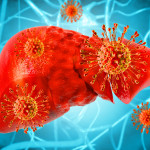As a result of the opioid epidemic, the concept of harm reduction has come into increasing prominence in the United States. Harm reduction is a strategy designed to reduce harmful consequences of drugs, sex, or other risky behavior by focusing specifically on reducing the harms associated with that behavior rather than focusing on the risk or illegality of the behavior. AIDS United has long advocated for harm reduction policies such as legalizing and funding syringe services programs (SSPs) and allowing or even requiring that condoms be available in prison. With the 11th National Harm Reduction Conference hosted by the Harm Reduction Coalition in sunny San Diego from November 3 to 6, this seems like a good time to provide an overview of some of AIDS United’s current harm reduction activities.
Harm Reduction Conference
AIDS United is participating heavily in this year’s National Harm Reduction Conference as a sponsor, as presenters and exhibitors, and as participants. AIDS United staff are leading several pre-conference workshops designed to help syringe service organizations and harm reduction organizers expand their capacity and increase their sustainability in an era of federal funding for syringe services. AIDS United is participating in a host of workshops throughout the conference — including a funders’ roundtable and a session diving into the federal implementation of syringe services funding — as well as tabling in the exhibitor hall for the duration. We will also be offering on-site technical assistance for any programs looking to apply for — or assist their health department in applying for — federal funding for SSPs.
Federal Funding Implementation
AIDS United has continued to monitor the implementation of federal funding for SSPs, and has produced a variety of resources for advocates and CBOs over the last year. In June, we released a webinar explaining the various implementation guidance documents released by the Department of Health and Human Services (HHS), Centers for Disease Control and Prevention (CDC), Health Resources and Services Administration (HRSA), and Substance Abuse and Mental Health Services Administration (SAMHSA) as well as the role Community Based Organizations (CBOs) could play in guiding their jurisdiction’s “Determination of Need” process. A follow-up webinar, examining what we’ve learned over the first year of federal funding availability, can be expected in the new calendar year. This fall, we released a series of fact sheets, including an SSP-101 and fact sheets aimed at CBOs and SSP advocates. We continue to offer capacity building and technical assistance for programs interested in expanding services using federal funds through our CDC-funded capacity building program Getting to Zero and our policy department. Finally, we continue to work with our partners within the Coalition for Syringe Access to build upon the victories won in late 2015.
Funding
The Syringe Access Fund (SAF) is a funding collaborative of Elton John AIDS Foundation, Irene Diamond Fund, Levi Strauss Foundation, Open Society Foundations, and AIDS United. It is the largest private funding collaborative for syringe access in the United States. The Fund is currently in the first year of its 9th funding round, with grantees across the country continuing to offer lifesaving services and critical policy advocacy on behalf of people who inject drugs. The Round 10 RFA, covering 2018-2019, is expected to be released in Fall, 2017. To date, the Syringe Access Fund has provided more than $17 million in grants to syringe services programs.
Policy Advocacy
AIDS United continues to support harm reduction policy responses to substance use, and in July became the first national HIV advocacy organization to publicly endorse Supervised Injection Facilities as an HIV/HCV prevention strategy for people who inject drugs, alongside expanded access to Medication Assisted Treatment, layperson-naloxone distribution, Good Samaritan protections, syringe services programs, and non-abstinence based housing first permanent supportive housing programs. This endorsement, supported by our Public Policy Committee, firmly centers harm reduction approaches to HIV prevention for people who inject drugs. With the opioid epidemic continuing to rage, AIDS United expects to only deepen our commitment to advancing harm reduction responses to this public health crisis.







Comments
Comments